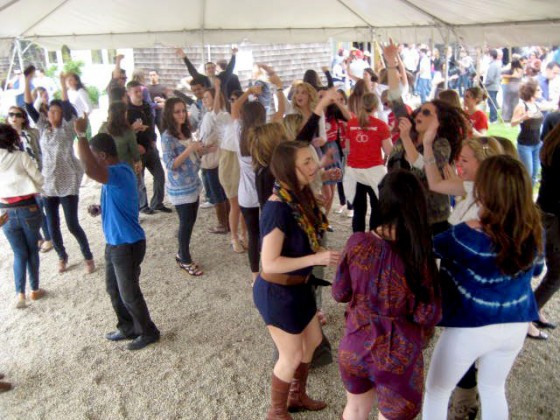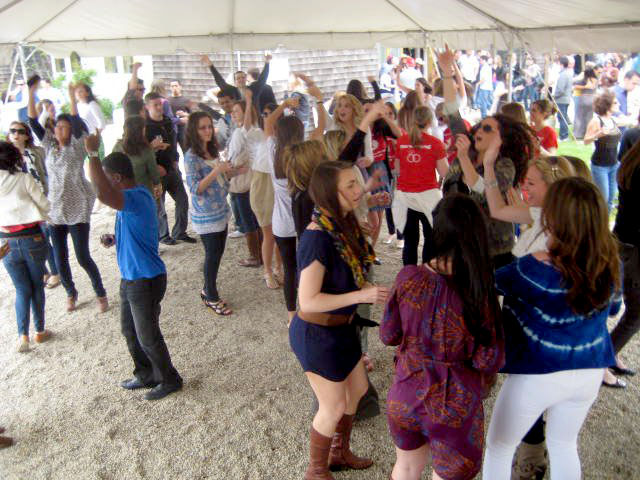
As you may have seen earlier this week, the New York State Liquor Authority revoked Vineyard 48’s liquor license. It’s hard to know exactly what happens next, but in the meantime, wineries on Long Island and beyond are now free to openly discuss a difficult subject — an industry and community policing itself.
It’s rare for wineries to speak in support of one other when speaking to power — being beholden to so many regulatory agencies, banks and the public can make a winery owner fearful on many levels. It is rarer still for them to openly criticize one another’s business practices, especially when one seems to be having some success. The real level of that perceived success, and the truth behind it aren’t always equivalent though.
In the case of Vineyard 48, this was not about jealousy, trade secrets, popularity or even good wine. The story here isn’t about the law that permitted their business practices, or about the town that so was slow and weak in their response to the threats to the community. This is about the self-policing of the industry, the spirit behind a winery license, and the true nature of wine tourism.
The liquor producers in America had a self-imposed ban on television advertising of high proof alcohol products for almost fifty years. In fact, the Distilled Spirits Council has for many years espoused a Code of Responsible Practices that has guided these businesses and served as an outlet for authorities and businesses alike to lean on for negotiating their way through, and out of, statutory challenges to their business.
Am I suggesting that more powerful leadership in the Long Island wine community could have shamed Vineyard 48 into behaving themselves? Actually, yes.
I think if the industry had collectively and openly condemned their abhorrent behavior, and discussed urgently behind closed doors the forthcoming black eye the industry was set to receive because of their behavior, this might have been avoided. There’s no telling what Vineyard 48 might have done in response to strong peer pressure, but at the very least, the greater Long Island wine industry could have saved itself from new and restrictive regulations on special events, and other draconian solutions to the Vineyard 48 problem that would depress all wineries in Southold, by distancing themselves openly from the offensive winery.
By staying quiet (on this) a tacit indifference to the community was allowed to pervade the conversation. And so the town responded by attempting to muzzle the whole industry. I can’t know what local winery leadership really knew or did or decided while all of this was going on. I do know their response to the special events legislation was handled brilliantly, and that the Long Island Wine Council’s director and its president where both effective in uniting the wine community and powerful communicators for common sense. They diffused a ticking time bomb. I can only wonder what might have been avoided had Vineyard 48 seen, or cared about the damage they were doing to the greater industry. Effective communication and self-regulation seems like a tonic right now.
There is nothing whatsoever wrong with doing business profitably and applying the state-given statutes effectively as a means to an end. Loopholes and vagaries in the law should be explored. Why not? A common question would be, does this help your business and is it in the state’s best interests? Does this promote New York agriculture and the community?
Certainly, Vineyard 48 could argue effectively and would be correct that what they did was within the law. What it was not, was in the spirit of a winery license. Dance halls, solo cups full of wine-ade and sangria, DJs and salacious behavior by clearly drunken patrons is not, even on its best day, in the spirit of a farm winery license. How would we know, and who is going to make a decision like that, especially when guided only by the written law?
Well, we found out who: The SLA will make that decision, and they have done so, and they’re allowed to do so. Understanding the law will not help you if you don’t understand who makes the decisions around our business. The golden rule should be, what would the SLA do? And treating the SLA as a Mr. Spock-like Vulcan, lacking emotion and only espousing the ABC laws will get you nowhere. They are in fact quite human, quite sympathetic to the community’s needs, and quite capable of deciding whether your understanding of what a farm winery is supposed to be jives with their understanding. As a state agency, the SLA trumps local government and is more resembling a Star Chamber than you might expect. They are in fact often quite fair, balanced, and thoughtful — and so the revocation of the Vineyard 48’s license isn’t really shocking. The SLA doesn’t telegraph its punches, and lands them every time, so testing their generosity is ill-advised.
Wine tourism today is big business, and deliberate neo-liberal economic expansion of destinations like Temecula (outside of Los Angeles) is causing blow back from regulators and planners who wonder where will the water come from, and is there infra-structure to support expanded production and visitation.
Actually, if the idea is to promote the rural beauty of vineyard areas, when does sustainability become an issue? For Long Island’s North Fork, the urgency of such planning is obvious as the demand for wine tourism increases, and the costs of maintaining the integrity of the area comes to the forefront.
In this case, Vineyard 48 and their issues are not the problem. The thousands of people twerking for free wine do not demonstrate anything to do with wine or wine tourism’s popularity. It does demonstrate how a lack of planning can create extremely long-lasting animosity within the communities.
Once property values were blessed by vineyards views, now proximity to a winery comes with a warning. Vineyard 48 didn’t bring ruination on the area — but unchecked, it could have. Vineyard 48’s continued success might have spawned copy cats — an endless parade of busses, limos, and up-island automobiles full of partiers. An expansion of this lifestyle would impact everyone on the North Fork, one way or another — a rather dystopian view on a future wine country that forgot about the wine.
The wine industry needs to police itself and keep to the good spirit and convivial nature that is inherent in wine and wine-drinking. We need to look inwardly, with an anthropological eye, and a better understanding of human nature. The barbarians are at the gates — don’t let them in.

